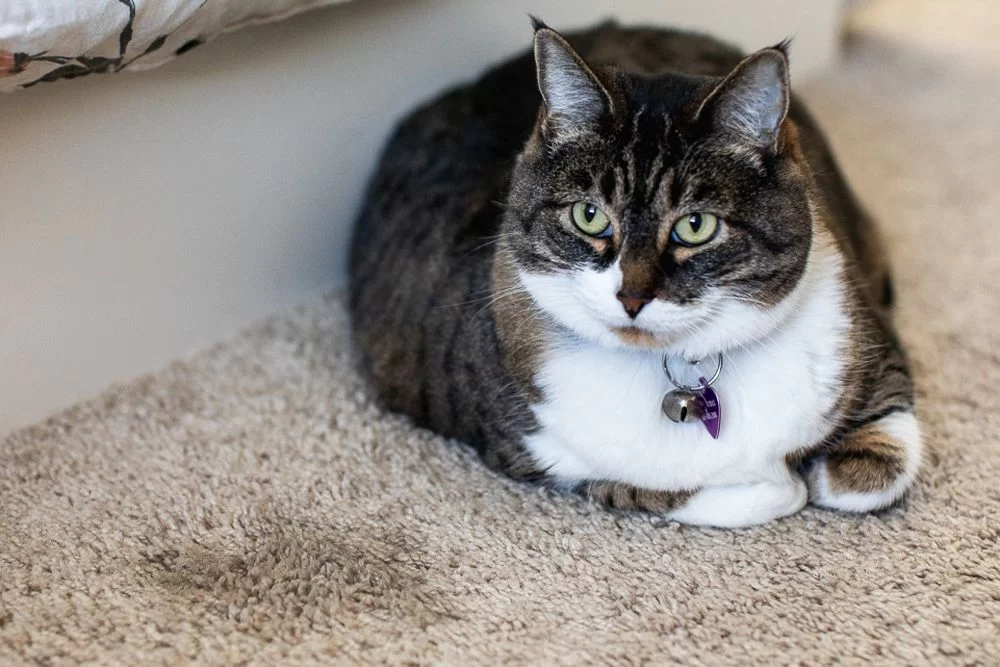How to Stop My Cat from Peeing Outside the Litter Box: Effective Solutions and Tips
- 1. Understanding Why Your Cat Might Pee Outside the Litter Box
- 2. Step-by-Step Solutions to Prevent Litter Box Issues
- 3. Choosing the Right Litter Box and Litter for Your Cat
- 4. Addressing Health Issues That Could Be Causing the Problem
- 5. When to Seek Professional Help for Litter Box Problems
If you’ve found yourself asking, "How to stop my cat from peeing outside the litter box?" you’re not alone. Many cat owners face this frustrating issue, which can stem from a variety of reasons. Understanding why your cat is avoiding the litter box is the first step in resolving the issue. It could be related to their health, stress, or environmental factors.
Why Is Your Cat Peeing Outside the Litter Box?
There are several reasons why a cat might start urinating outside the litter box:
- Medical Issues: Urinary tract infections, bladder stones, or other health problems can make your cat associate the litter box with pain, leading them to avoid it.
- Stress and Anxiety: Changes in your home environment, such as new pets, moving, or even changes in your routine, can cause your cat to feel stressed.
- Litter Box Problems: Sometimes, it’s simply that the litter box isn’t clean enough, in the right location, or the wrong type of litter is being used.
2. Step-by-Step Solutions to Prevent Litter Box Issues
Once you understand the possible reasons, it’s time to implement a series of solutions to prevent your cat from peeing outside the litter box:
1. Keep the Litter Box Clean
Cats are naturally clean creatures and prefer a clean place to do their business. Make sure to scoop the litter box daily and change the litter regularly. This will make the box more inviting for your cat and prevent them from finding alternative places to urinate.
2. Provide Enough Litter Boxes
If you have multiple cats, ensure that you have enough litter boxes. The general rule is one box per cat, plus one extra. This helps reduce territorial conflicts and gives each cat their own space to relieve themselves.
3. Location Matters
Place the litter box in a quiet, accessible location where your cat feels safe and comfortable. Avoid putting it in areas with heavy foot traffic or near loud appliances, as these can make your cat anxious and discourage them from using the box.
3. Choosing the Right Litter Box and Litter for Your Cat
The type of litter box and litter you use can significantly impact your cat's willingness to use it. Here’s what you need to consider:
1. Size and Type of Litter Box
Make sure the litter box is large enough for your cat to comfortably enter and move around in. Some cats prefer an open box, while others might feel more secure in a covered one. Experiment with both options to see which one your cat prefers.
2. Choose the Right Litter
There are many types of cat litter available, from clumping to non-clumping, and from scented to unscented. Cats can be particular about the type of litter they use, so it may take some trial and error to find the one that suits your cat’s preferences. Stick to unscented litters if your cat is sensitive to strong smells.
4. Addressing Health Issues That Could Be Causing the Problem
It’s important to rule out any medical causes if your cat is consistently peeing outside the litter box. If your cat suddenly starts urinating outside the box or seems to be in pain, a visit to the vet is necessary. Some common health problems include:
- Urinary Tract Infections (UTIs): UTIs are painful and can cause your cat to avoid using the litter box. Your vet will provide treatment, and it’s crucial to follow their advice.
- Bladder Stones: Bladder stones can cause discomfort when your cat tries to urinate, leading them to avoid the litter box altogether.
- Stress or Anxiety: A vet may suggest ways to manage your cat’s stress, whether it’s through medication, behavior modification, or environmental changes.
5. When to Seek Professional Help for Litter Box Problems
If you’ve tried these solutions and your cat is still peeing outside the litter box, it may be time to seek professional help. A veterinarian or animal behaviorist can help diagnose any underlying medical or behavioral issues and recommend a treatment plan tailored to your cat’s needs.
If you’re looking for expert advice and care for your cat, consider visiting Hidden Brook Veterinary. Their team of professionals can help identify the cause of your cat’s litter box issues and guide you toward the best solution. Visit Hidden Brook Veterinary for more information.











